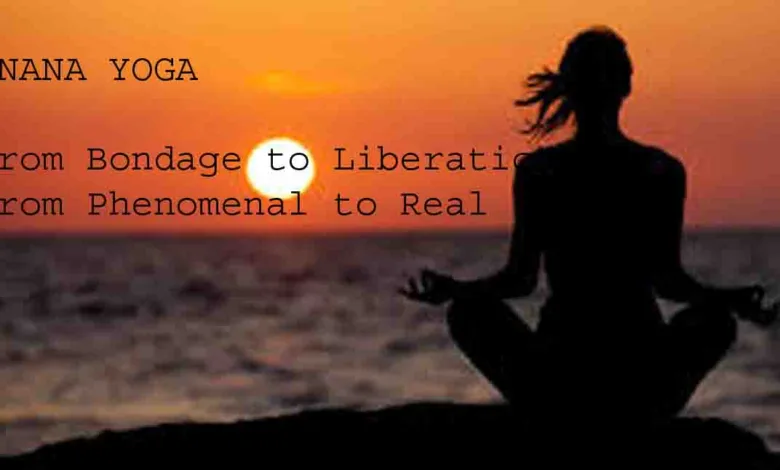Jnana Yoga: Path of Knowledge Leading to Liberation of Soul

Jnanain Sanskritmeans knowledge, but the knowledge used in the context of Jnana Yoga is not the ordinary knowledge, not the knowledge that comes from the mind that remains constricted in the relatively surface level of thinking and perceiving.
This knowledge is the knowledge of the Real Self that stands in contrast to the knowledge of the phenomenal self. The Real Self is eternal, infinite, unrelated to the cycle of time, the cycle of life and death while the phenomenal self is subjected to the mutations of time, decays and death, related to the appearance as opposed to the ultimate Reality of the world and the existence.
This particular path of India’s classical yogas moves through Buddhi or pure Intellect. This involves the unraveling of the mystery of mind, lower layers of mind understood and rejected. To reach the pure Mind, the ordinary mind activities must not just be controlled but transcended. Jnana Yoga signifies bringing emptiness in mind. The mind ordinarily is kept in bondage to thoughts and desires and it must now give way to the freedom in thoughtless purity. When the mind experiences thoughtless purity what exists then is the real Self that is beyond birth and death, eternal, infinite, immutable, indestructible.
Jnana Yoga is difficult. One can hardly tread this yogic path unless his urge for realising his real Self becomes overpowering. This must become an obsession with him for purity and freedom of mind, with self-conquest, conquest of the weakness the humans are vulnerable to, for something that leads to the realm of Bliss which is the final goal of all yogic endeavours. The mighty spiritual experiences that come progressively through the practice of Jnana Yoga help sweep away the cobwebs of Illusion: the appearance, the phenomenal, the unreal.
The power of the phenomenal world on human mind is so deep and so huge that one must have the indomitable will and invincible persistence to go to the end to realise his Self and live settled in it.
We have before us the example of Siddhartha who renounced everything- a prince embracing penury for real knowledge. He finally became the Buddha, the Enlightened.






